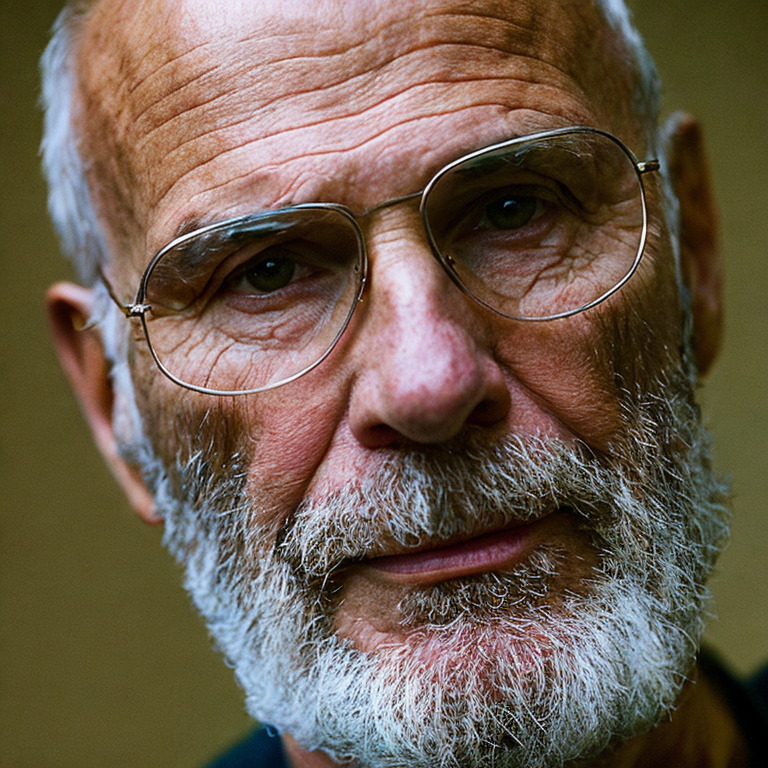Unveiling the Mind of Oliver Sacks
Oliver Sacks was a neurologist, author, and professor who dedicated his life to exploring the human brain and its mysteries. He is most famous for his books and articles about neurological disorders, such as “The Man Who Mistook His Wife for a Hat” and “Awakenings.” A hipster hero of sorts, Sacks was a giant of the medical world, winning the Lewis Thomas Prize for Writing about Science and the Lasker-DeBakey Clinical Medical Research Award.
Born in 1933 in London, Sacks was educated at the prestigious Queen’s College, Oxford, where he studied medicine and bio-chemistry. He went on to complete a residency in neurology at the United Hospital in London, after which he moved to the United States in the early 1960s. It was here that he began his career as a professor of neurology at NYU Medical School and a consulting neurologist at Beth Abraham Hospital in the Bronx.
Throughout his career, Sacks was an ardent believer in the power of the human mind and the importance of understanding its complexities. He wrote extensively on the differences between healthy and abnormal brains, drawing on his own experiences as a doctor and his own scientific research. This research led to the publication of several influential books and articles, including “The Man Who Mistook His Wife for a Hat,” “Awakenings,” and “An Anthropologist on Mars.”
Sacks was also known for his unique approach to treating patients. He was renowned for his compassionate and caring approach, focusing on understanding the individual before attempting to diagnose or treat them. He believed that understanding a person’s experience of the disorder was essential to successful treatment, and he wrote extensively on the importance of empathy and the power of the human spirit.
Sacks’ work has had a profound influence on the field of neurology, inspiring generations of doctors to take a holistic approach to treating neurological disorders. He was also a passionate advocate for the rights of patients with neurological disorders, arguing that they should be treated with respect and dignity.
Sadly, Sacks passed away in 2015 at the age of 82. But his legacy lives on through his work, which continues to not only educate medical professionals but also inspire ordinary people to think critically about the human brain and its capabilities.
For all these reasons and more, Oliver Sacks remains a hipster hero of the medical world. His innovative ideas, compassionate approach, and his passion for understanding the complexities of the human brain have made him a true legend in the field of neurology.
Uncovering Oliver Sacks
Oliver Sacks was a celebrated British-American neurologist, author and professor who wrote widely on topics related to the brain, including memory, language, hallucinations, and the effects of drugs on the brain. He was best known for his 1973 book Awakenings, which was later made into an Academy Award-nominated film.
Despite his many successes, Sacks was not without controversy. In April 2015, it was revealed that Sacks had been diagnosed with terminal cancer, which he had kept private for the previous eight months. This prompted criticism from some who felt he should have been more open about his diagnosis.
In addition, Sacks was criticized for his decision not to publish a book about his experiences with terminal cancer. He had been working on the manuscript for years but chose not to publish it. Some felt that his decision deprived the public of a valuable insight into his final days and an opportunity to gain a better understanding of the experience of terminal illness.
Finally, there were those who felt that Sacks’s work was too focused on the medical aspects of various neurological conditions and did not capture the experiences of those affected by them. Sacks himself acknowledged this criticism, saying that he was “more of a clinician than a humanist” and that he was “not always as sensitive as I should be to the psychological and social dimensions of illness.”
Discovering Oliver Sacks
Oliver Sacks was born in London in 1933 and moved to New York in the 1960s.
• After graduating from Oxford University, Sacks completed his medical training at Mt. Zion Hospital in San Francisco.
• Sacks wrote many popular books such as “The Man Who Mistook His Wife for a Hat” and “Awakenings” which became popular films.
• Sacks was a passionate advocate for medical humanities and wrote extensively about the ethical implications of modern medicine.
• Sacks was also an avid bicyclist and was known to ride his bike around New York City.
• Sacks was a lifelong fan of the New York Yankees and was once invited to throw out the first pitch at a Yankees game.
• In the 1970s, Sacks spent time in the Faroe Islands off the coast of Denmark studying the effects of the local diet on the population’s health.
• Sacks was a passionate amateur photographer, often taking his camera with him on his travels.
• Sacks was an early adopter of the internet and was an active user of email in the 1990s.
• Sacks died in 2015 in New York City, two weeks after publishing his memoir, “On the Move.”
Tags: AnAnthropologistOnMars, Author, Awakenings, Books, brain, clinical, hallucinations, insights, medicalcasestudies, medicaldoctor, medicine, memoirs, neurologist, neurologistmemoirs, neurology, OliverSacks, professor, psychology, research, science, sciencewriter, TheManWhoMistookHisWifeforaHat, writer
Tweet